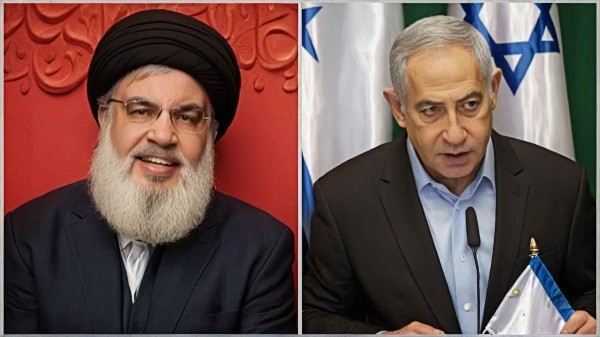Iran’s Plan to Strike Back Against the U.S.
Iran’s Military Preparations Following U.S. Attacks
Loading...

Will Israel’s Netanyahu try to inflame the border with Lebanon or has Hezbollah made it clear what that would cost him?
A Shift in Cross-Border Dynamics
The recent escalation of tensions between Hezbollah and Israel has prompted analysts to question whether Hezbollah has successfully re-established a deterrent stance against Israeli aggression. Following a significant exchange of attacks on August 25, the intensity of cross-border skirmishes has notably decreased. This shift comes amid a tumultuous week in Israel, where protests erupted against Prime Minister Benjamin Netanyahu's government after the execution of six Israeli captives. Observers are now speculating whether Netanyahu might seek to provoke further conflict with Hezbollah as a diversion from domestic unrest.
During a media conference, Netanyahu hinted at a forthcoming response to Hamas, stating, “We’re going to exact a heavy price... there’s going to be an element of surprise here.” However, aside from insisting on a permanent Israeli presence in the Philadelphi Corridor along the Egyptian border, which complicates ceasefire negotiations in Gaza, Netanyahu has not provided a clear strategy moving forward.
The Build-Up to Conflict
Hezbollah's aggressive posture began on October 8, following Israel's declaration of war on Gaza in retaliation for a Hamas-led attack that resulted in over 1,100 Israeli casualties. Tensions escalated sharply, particularly after Israel targeted a building in Beirut's southern suburbs on July 31, killing five individuals, including senior Hezbollah commander Fuad Shukr. This assassination marked a significant moment, as it was part of a broader Israeli campaign against Hezbollah leadership.
In retaliation, Hezbollah intensified its cross-border attacks, culminating in a preemptive strike by Israel on August 25, which involved over 100 jets targeting Hezbollah positions across Lebanon. Hezbollah responded with a barrage of 340 rockets aimed at Israeli military sites, including the Glilot military base near Tel Aviv. Despite Netanyahu's dismissal of Hezbollah's claims of success, the exchange underscored the ongoing volatility in the region.
Deterrence and Its Implications
Hezbollah has consistently framed its conflict with Israel as interconnected with the situation in Gaza, asserting that its military actions would cease once a ceasefire is achieved. However, some analysts view the conflict as distinct, with Western diplomats reportedly working to prevent a broader war in Lebanon. The recent attacks by Hezbollah were intended to re-establish a deterrent capability, signaling to Israel that further strikes against its leaders would come at a significant cost.
Political analyst Imad Salamey noted that Hezbollah has indeed restored a considerable level of deterrence following its retaliatory campaign. He emphasized that this counters Israeli claims of having diminished Hezbollah's military capabilities, illustrating that the group retains effective command and control despite Israel's extensive military efforts.
A Temporary Calm?
In the aftermath of the August 25 exchanges, both Israel and Hezbollah appear to be signaling a desire to avoid further escalation. Reports indicate that neither side is keen on igniting a full-scale war, which could have devastating consequences for both nations. Analysts suggest that while Israel may continue targeted strikes in Lebanon, it is unlikely to pursue high-profile assassinations like that of Fuad Shukr in the near future.
The situation remains precarious, with over 560 fatalities reported in Lebanon since October 8, including many civilians. On the Israeli side, casualties have also mounted, with 23 soldiers and 26 civilians lost to cross-border attacks. The ongoing conflict has displaced tens of thousands on both sides, and while there is a temporary lull in hostilities, the potential for renewed violence looms.
As tensions ease, the risk of miscalculation remains high. Salamey warns that any misstep by Israel could trigger a costly military retaliation from Hezbollah. The group's demonstrated resilience suggests that Israel must carefully weigh its options before escalating further. While many may hope for a lasting peace, the specter of conflict continues to hover over the region, leaving both sides in a state of cautious anticipation.
Editor
Iran’s Military Preparations Following U.S. Attacks
Troops remain in five strategic locations, raising fears of renewed tensions and long-term occupation.
Opposition forces have taken control of the capital after a significant offensive. Here is how it unravelled.
